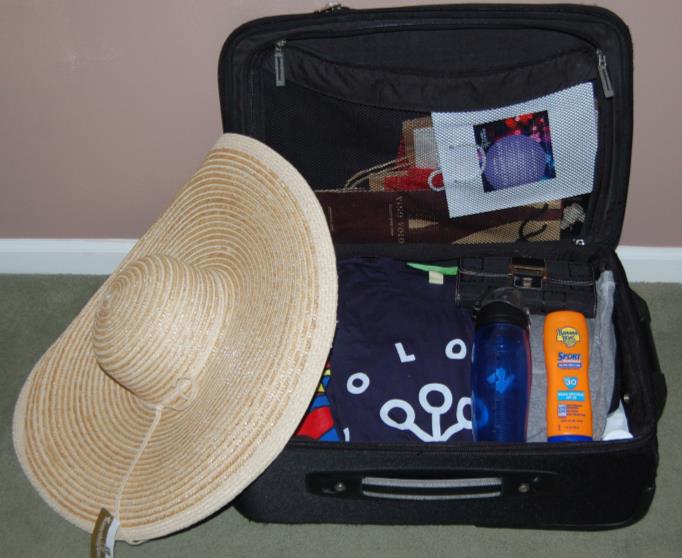Safety tips for Spring Break
Spring Break may be over, but summer vacation is just around the corner. Many graduates, in particular, are looking forward to freedom and travel. Whether you’re staying in the country or venturing out, safety can be an issue wherever you go. Read up on these Spring Break safety tips to better protect yourself and to save your parents from worrying more than necessary.
One simple way to stay safe while vacationing is to wear plenty of sunscreen and drink lots of water. Sunburns and dehydration are not a joke, and they can easily ruin your Spring Break if you are not careful.
“It’s hard to remember things like sunscreen on vacation,” said senior Amanda Trojniak, “but I know that if I get sunburned it will be much worse than just putting the sunscreen on in the first place.”
When it comes to planning trips, it’s important to take all parts of the vacation into consideration. If you are driving yourself somewhere, make sure to bring a map since phones and GPS’s are not fool-proof and can run out of battery. When parking, make sure to never leave valuable items in plain sight. If you are taking a taxi or relying on an Uber driver, make sure to check for some form of official identification. Also, try to follow the route on a GPS if possible to make sure you are going the right direction.
The possible safety issues of hotel rooms aren’t ones that people often take into consideration, but unfortunately hotels aren’t always as safe as they seem. If you have valuables with you, such as computers, jewelry, or wallets, make sure to use the safes that almost all hotels provide. When you first get to your room, check to make sure all of the door and window locks work properly, and if possible, use the deadbolt on the door at night.
In a 2009 study published in USA Today, over 750 crimes were reported to the Miami Beach Police Department by 64 Miami Beach hotels. Over half of the crimes against guests were thefts, and 38 percent occurred in the hotel rooms. Thirteen percent occurred in cars parked in hotel parking lots.
Another serious theft issue is that of pickpocketing, especially in foreign countries. According to the Irish Examiner about 400,000 pick-pocket thefts occur daily. If you are planning on carrying any money or valuable items on your person it is important to make sure they are stowed safely away, even in methods such as a money belt. Being aware of your surroundings and never leaving any personal bags unattended is also important in keeping your possessions safe.
“I’ve had little things like money or sunglasses stolen on vacation before,” said senior Emily Crowley. “I just put it down for a second, and when I look back, it’s not there. I’ve learned to be a lot more aware of where I put my stuff now.”
One of the biggest issues with traveling, especially without a chaperone , is that of staying safe from violent or kidnapping crimes. The horror stories are everywhere, whether in movies or on the news. However, they are often dismissed as improbable. According to the U.S. Dept. of International Travel, kidnappings in Mexico in 2013 increased 20 percent from the previous year. While it may seem like it could never happen to you, it is important to take preventative measures regardless.
Traveling in groups enhances safety but does not guarantee it. Constant vigilance and awareness is also important. If you are staying at a resort, do not leave unless you know exactly where you are going and your outing has been verified through the hotel. It can also be beneficial to not draw attention through expensive accessories such as watches, purses, jewelry, etc.
Vacationing is supposed to be a fun, easy-going experience, and as long as you are aware of the safety concerns around you, it will be. So, while cutting-loose may be important to your mental health, staying aware of possible dangers is very important when it comes to your physical health.

